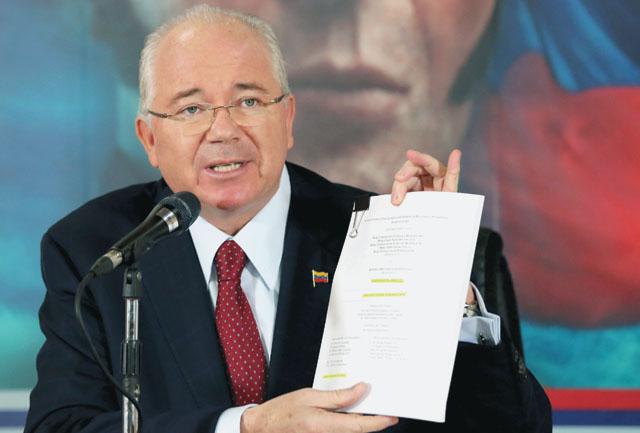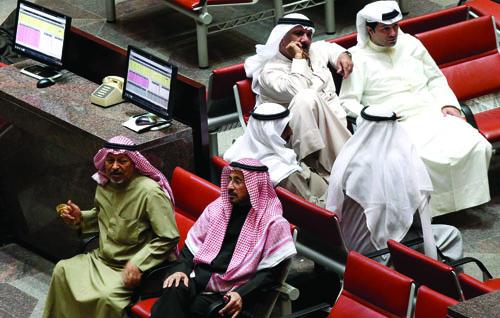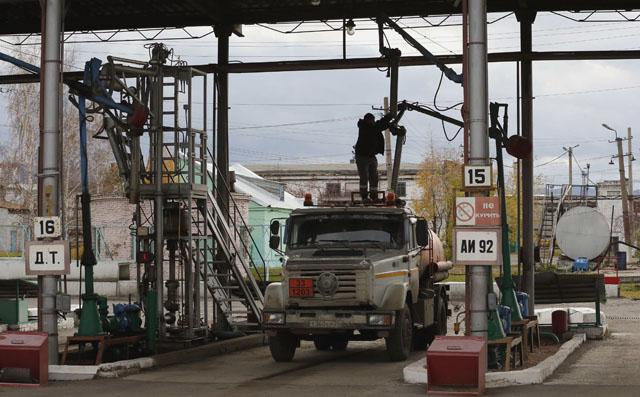You are here
Kuwait expects winter to bring end to oil price slide
By AFP - Oct 12,2014 - Last updated at Oct 12,2014

KUWAIT CITY — Kuwaiti Oil Minister Ali Al Omair said Sunday he expects falling crude prices to recover in winter indicating that the Organisation of Petroleum Exporting Countries (OPEC) was unlikely to counter the slide in the short term.
"We expect [oil prices] to increase in the winter season or at least preserve its current level," said Omair, cited by the official KUNA news agency.
The minister also said he believes that oil prices will not drop below $76-$77 a barrel, which is the production cost in Russia and the United States.
The decline was expected due to geopolitical factors, a rise in supplies and negative forecasts for global economic growth, Omair explained.
He said Kuwait has not received any invitation for an emergency OPEC meeting to discuss prices but would attend if the call came up.
However, a cut in OPEC production "may not necessarily boost prices" because of high output by other producers, especially Russia and the United States, he said.
Oil prices closed slightly higher Friday following massive losses in a market gripped by worries about weakening global demand and a supply glut.
US benchmark West Texas Intermediate for November delivery edged up five cents to close at $85.82 a barrel on the New York Mercantile Exchange after sinking to $83.59 in early Asian trade.
Brent North Sea crude for delivery in November recovered from a four-year low to score a gain of 16 cents, settling at $90.21 a barrel in London. Since June, Brent has lost around $25 a barrel.
Separately, Venezuela will ask for an emergency meeting of OPEC countries to try to halt sliding oil prices, Foreign Minister Rafael Ramirez said Friday.
A barrel of Venezuelan crude closed at $82.72 on Friday, a drop of $3.17 for the week, one of the lowest levels in the past three years.
"We are going to ask for an extraordinary OPEC meeting. We need to try to coordinate some sort of action to stop falling oil prices," Ramirez said at a Caracas news conference.
"I am convinced this is not due to market conditions, but is price manipulation to create economic problems for large oil-producing businesses," added Ramirez, who is the former oil minister and ex-head of the public oil company PDVSA.
This year, Venezuelan crude has averaged $94.99 per barrel, compared to $98.08 in 2013 and $103.42 in 2012.
"It doesn't suit anyone if the price of oil falls below $100 a barrel," Ramirez said.
The next regular OPEC meeting is scheduled for November 27 at the group's Vienna headquarters in Austria.
According to Ramirez, the price drop is due to an overproduction in non-OPEC countries — a reference to shale oil, of which the United States is the world's top producer.
While it has some of the world's biggest oil reserves, Venezuela only produces 2.4 million barrels a day, which bring in 96 per cent of its foreign currency reserves.
The 12 members of OPEC, who pump about a third of the world's crude, said Friday that world demand will grow by 1.05 million barrels per day (mbpd) to 91.19 mbpd this year.
For 2015, OPEC predicted demand to reach 92.38 mbpd, unchanged from its previous forecast.
Related Articles
Members of the Organisation of Petroleum Exporting Countries (OPEC) which backed an output cut at the group's meeting last month are coming around to the view of Saudi Arabia that they need to focus on market share, further reducing the chance of any action to defend prices.
Government revenues in Kuwait dropped 4.4 per cent in the first half of the fiscal year due to sliding oil prices, but the energy-rich emirate still reported a healthy provisional surplus.
Brent oil prices fell more than $2 a barrel to less than $88 on Monday, its lowest since 2010, after key Middle East producers signalled they would keep output high even if that meant lower prices.


















